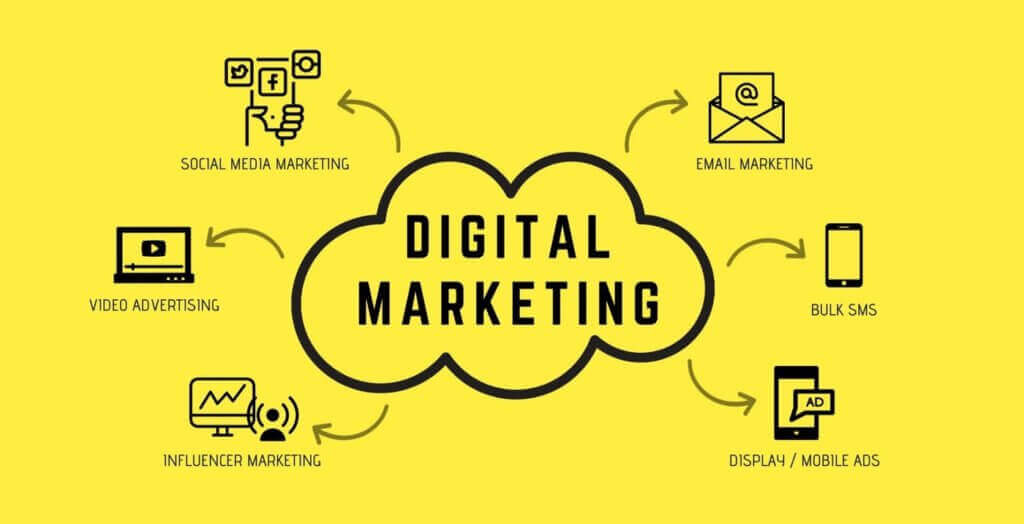Here are 10 tips to assess your knowledge of regional Languages and cultural nuances when researching a digital agency in Asia. This list includes pros, con’s, and the importance of each.
1. Verify Native or Fluent Language Expertise
Why is it important A precise, fluid language usage ensures the message of marketing is resonant with local audiences, and prevents misunderstandings.
Native speakers create content that is appropriate to their culture and convincing.
Cons: Poor translations or non-native speakers can result in awkward messages that damage credibility.
2. Examine Regional Dialect Knowledge
What is important: Many Asian nations (e.g., China, India) have different dialects that impact how people communicate. Tailoring campaigns for specific dialects increases effectiveness.
Pros: Represents the agency’s dedication to localization.
Cons: Focusing on dialects can increase expenses and can make it more difficult to manage campaigns.
3. Test Cultural Sensitivity
Why it matters: Marketing materials must be sensitive to cultural taboos practices, norms, and customs to avoid negative reactions. In Asia, for example certain colors, numbers or phrases have specific significance (e.g. red symbolizes luck in China).
Benefits: Helps build credibility and brand recognition by reducing the chance of offending your target audience.
Cons: Missteps due to ignorance of cultural nuances can result in PR disasters.
4. Ask About Experience with Local Holidays and Events
What’s the significance of local holidays such as Chinese New Year, Diwali or Ramadan are prime occasions for marketing campaigns. However, they require cultural fluency in order to appear authentic.
Pros: Increases involvement by making use of the right events that are culturally appropriate.
Cons: Poorly handling these situations could appear sloppy or even shrewd.
5. Check Expertise for Visual and Symbolic preferences
Why it matters: Visual design preferences vary across Asia. For instance, Japanese consumers value simplicity however, Southeast Asian audiences may prefer bold, colorful designs.
Positives: Visuals closely aligned with content improve the engagement and attract attention.
Cons: Misaligned visuals could turn off viewers or make your brand seem out of touch.
6. Test Adaptability in a Variety of Markets
Why it is important: Asia as a whole isn’t a monolithic market. China, Japan India and Southeast Asia all have their own languages, religions and consumer habits. Agencies must adapt their strategies to meet the needs of each.
Pros These campaigns have the ability to appeal to a range of people in various regions.
Cons: Complexity of managing multi-regional campaigns may result in cost increases or slowing down execution.
7. Localized Keyword Research in SEO
It is important to have a regional specialist in the language for platforms like Baidu, Naver or Yahoo Japan. Keywords can be misinterpreted when they are translated directly.
Search visibility and relevance is improved in local markets.
Cons: Poorly translated keywords or lack of local intent understanding will hinder SEO performance.
8. Test Your Experience with Stories and Humor
Why it matters: The styles of storytelling and humor differ across different cultures. As an example, subtle humor works well in Japan while dramatic storytelling does very well in India.
Pros: It allows the brand to connect emotionally with local audience members.
Cons: A misjudgment in humor or tone could make the campaign fail or offend.
9. Assess cultural knowledge in influencer marketing
Why cultural relevance is important: Influencer marketing relies heavily on the relevance of culture. Influencers are more relatable in Asia than in Western markets.
Pros: A proper alignment of culture with influential people increases credibility.
Cons: Selecting influencers without considering cultural relevance could weaken the impact of the campaign.
10. Find your local copywriting and creative teams
What is the reason it’s important? Successful campaigns require creative professionals who have a solid understanding of local audiences. Generic translations aren’t enough–authenticity is key.
Local teams are able deliver customized, effective messages that directly touch the hearts of their audiences.
Cons: Agencies that do not have local talent in-house may rely on freelancers from outside, causing delays to timeframes or degrading the quality.
Reduce the risk of costly mistakes and increase the efficiency of your marketing campaign in Asia by selecting an agency with deep knowledge of regional languages. Take a look at the most popular digital marketing agency in asia for blog info including marketing company, digital marketing agency near me, digital and marketing, web marketing, digital marketing digital marketing, full service marketing agency, digital marketing firm, web for marketing, marketing digital website, web marketing firm and more.

Ten Tips For Value And Pricing In The World Of Money
When choosing a digital company in Asia price and value are essential. The quality of services, the location, or experience can influence the price. Below are some suggestions and explanations of the reasons why it is important as well as pros and pros, to help evaluate pricing effectively.
1. Find out more about the Agency Pricing Structure
The reason it is important It is because each agency could have various pricing structures that includes fixed fees as well as hourly rates. Understanding their pricing structure can aid you in determining whether or not it’s in line to your budget.
Cons: You can easily understand what you are paying for using clear pricing models.
Cons: A lack of clarity can cause unexpected expenses or disappointment.
2. Compare Pricing Across Multiple Agencies
Check prices to make sure you are not paying excessively.
Pros: Gives you a benchmark for competitive pricing.
Cons: By focusing solely on price, you could be ignoring the quality of service.
3. Find Bundled Services
Why it matters: Some agencies offer bundled packages for SEO, PPC, and social media marketing. These packages could save you money when compared to individual services.
Pros: Cost-efficient if you need multiple services.
Cons: Bundled bundles could include extra services you don’t really need.
4. Do not only look at the cost. Instead, consider the ROI.
Why it is important Why it is important: A less expensive agency may not deliver the results of the more expensive one. Take into consideration the value they can provide for the price.
Pros: Ensures you invest in results-driven campaigns.
Cons: High returns on investment could mean more upfront costs.
5. Check for Hidden Costs
The reason this is important: Some advertising agencies charge additional costs for services such as tools, revisions or adspend management. This can increase the total price of the campaign.
Cons It is possible to budget effectively and with no surprises.
Cons: Hidden charges could cause your budget to be stretched out unexpectedly.
6. Contracts are flexible.
What is the significance of it Certain agencies require the long-term contracts, while other agencies prefer monthly contracts. The terms you choose should be suitable for the needs of your company.
Flexible contracts let you adapt services according to the performance.
Cons: Long-term contracts could lock you in to low-quality service.
7. Cost of Regional Expertise
What’s the significance? agencies that concentrate on Asian markets will charge a higher fee for their knowledge of the local market and their knowledge of platforms (e.g. WeChat, Douyin or Shopee).
Pros: Local knowledge ensures effective campaigns.
Cons: Higher costs for regional expertise may strain smaller budgets.
8. Confirm what’s included in the price
What is important: Make sure the price is inclusive of all essential services, like analysis reporting, strategy development, and optimization.
Cons: The cost of paying additional fees for essential services is not a good idea.
Cons: Incomplete service packages may hinder campaign success.
9. Quality can be balanced with affordability
The reason it’s important finding a equilibrium between cheap services and high quality ensures the best value.
Pros: Boosts the efficiency of spending.
Pros: Too much emphasis on price can degrade the quality of the service.
10. For more information, contact us at performance-based pricing@
Why it is important The reason is that some agency pricing is dependent on performance metrics. For instance the number of leads generated and the ROI.
Pros: Aligns incentives from agencies with your company’s goals.
Cons: You could have to pay higher rates if you are successful in your campaign.
The most important takeaway
A successful digital marketing company will be able to balance cost, performance and quality. It is important to look beyond the upfront price and consider value, ROI potential and contract flexibility to maximize the return for your money. Take a look at the recommended korean digital marketing agency for blog tips including social media and digital marketing, media marketing digital, web marketing, top marketing agency, manager marketing digital, manager marketing digital, performance marketing company, digital marketing social media marketing, digital media and digital marketing, social media and digital marketing and more.
